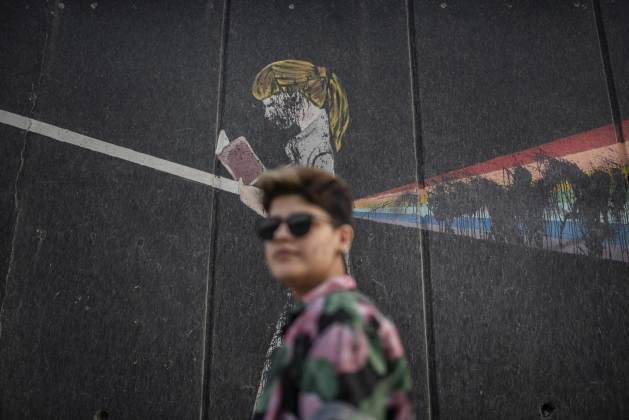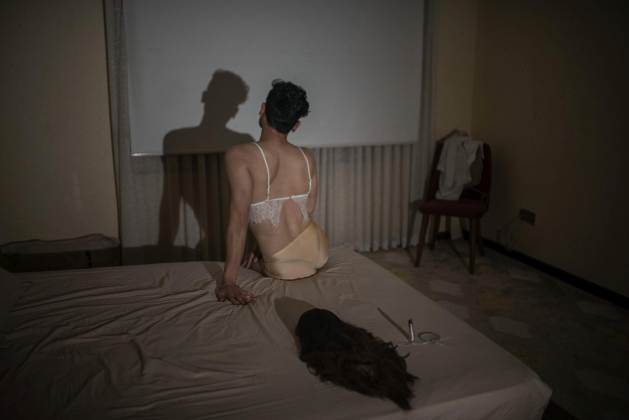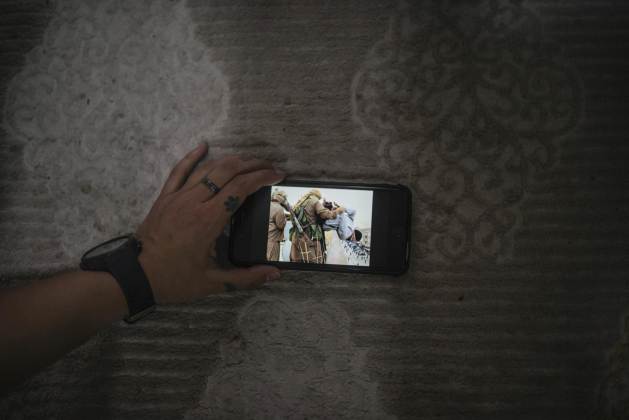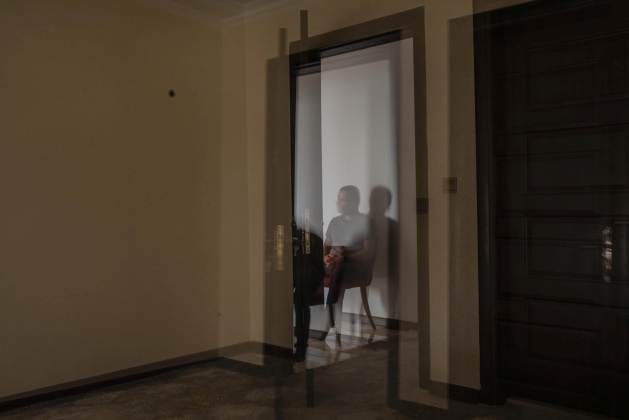LGBTI in Iraq: Defending Identity in the Face of Harassment, Stigma and Death

SULAYMANIYAH, Iraq, Nov 25 (IPS) - It's mostly people in their twenties sitting on a terrace in the shade of a beautiful grove of trees: black clothes, piercings, tattoos and some purple streaks in their hair.
It could be a trendy cafe in Berlin, Paris or any other European capital, but the sunset call to prayer reminds us that we are in Sulaymaniyah. After Erbil, it's the second city in the Kurdish Autonomous Region of Iraq.
We cannot disclose the cafe's exact coordinates, nor the full name of the person who has brought us here. She is dressed in white -shorts and a T-shirt- and boasts a rainbow bracelet on her left wrist. She asks to be quoted as Kween. "It's just queen with a k for Kurdish," she explains. Kween is a trans woman.
The youngest of five children from a Kurdish family in Diyala, a district in the east of the country, this 33-year-old Kurd admits to IPS that she was "a boring man" for the first 25 years of her life.
“I learned to block my needs. However, I first dressed as a woman in my mother's clothes and also put on makeup when I was only five,“ she recalls. In a dress, she adds, “I feel the person I am and the person I have always been.”
But that freedom mostly enjoyed in solitude has its price. How to forget the beating her older brother gave her when she was first caught, at six; the humiliation and bullying she suffered at school...
She was almost killed when she was 24. Someone contacted her on the Internet and asked to meet on the outskirts of the city. But they were five individuals, waiting to give her a thrashing. Completely numb from the beatings and covered in mud and blood, Kween still mustered the strength to walk to a local judge's office.
"You have two options: either file a complaint and stain your family's name forever, or simply stop doing what you do," the magistrate blurted at her. Back home, she could not say what she had gone through or, above all, why. Even today, no one in Diyala knows that Kween is a woman.
Against all odds, she's been working for several years with a foreign NGO focusing on the protection of vulnerable groups. Among other projects, she´s working on a list of Kurdish words to talk about the rights of the LGBTI collective that are not offensive.
An example: Hawragazkhwaz (literally, "someone attracted by members of their own sex"), is, so far, the only inclusive form for "homosexual;" miles away from commonly-used terms that include ideas such as "paedophilia" or "rape".
Kween has not yet decided to have surgery or take hormones, but she hasn't had much time for it either. The work at the NGO and the search for a place in society for the members of the LGBTI community, she says, absorb most of her time.
"If I have a mission in life, this is it."

“Immoral conduct”
A transgender woman is beaten, burned alive and thrown in a dumpster; assailants torture, then murder a gay man while his partner is forced to watch; a lesbian is stabbed to death while being told to stop her “immoral conduct”.
These are just three cases among the many included in a Human Rights Watch report on the LGBTI collective in Iraq released in march 2022. Kidnapping, rape, torture and murder of queer people at the hands of armed groups, "often by the state's security forces," are also reported.
"The members of this community live under the constant threat of being captured and killed by the Iraqi police, and under total impunity," Rasha Younes, an HRW researcher, denounced in the report.
The images of gay people the Islamic State pushed from rooftops are still fresh in everyone's minds. Also the ones Doski Azad, a Kurdish trans woman, posted on Instagram before her body was found in a ditch last February. She was murdered by her own brother.

“I know a lot of people who never go out on the streets,” Varin, a 23-year-old queer activist tells IPS from the same terrace. It was thanks to the Internet that she discovered that, like her, there were people who did not feel identified with any single gender expression.
The activist works in a swimming pool, but her chemistry studies have opened up a job opportunity for her in Qatar that she does not want to miss.
“I showed up for the job interview dressed as a demure woman and, of course, with long sleeves so the tattoos wouldn't show,” she bursts out with a loud laugh.
Varin points to “around 30 members” within Sulaimaniyah LGBTI community. They meet in cafes like this one. Social networks also make it easier to get to know each other.
Do they organize protests? No, too dangerous. Actually, the mural that she will choose to pose for our photograph has already been vandalized (it would be completely destroyed a few days later).
Despite the threats, this Kurdish city has become the safest space in the country for members of the LGBTI community. Many queer people from the south of the country seek refuge in cities like Erbil, the Kurdish capital of Iraq.
The situation is by no means comparable, but Varin underlines that Erbil is still a very conservative city, “one of those in which time stands still during the month of Ramadan and where you can never let your guard down."
Suicidal tendencies
In April 2021, several young men from Sulaimaniyah were arrested "for being homosexual and for their immoral conduct." That´s how the leader of the operation labelled it before the press. The Sulaimaniyah Police refused to answer questions from IPS. Nonetheless, harassment seemingly extends to anyone who may dare to show any kind of support.
Such is the case of Rasan, a local NGO constantly forced to answer to justice for "promoting the LGBTI community." They are still awaiting trial after the most recent lawsuit, filed by a member of the Kurdish parliament.

From their office in Sulaimaniyah, Tanya Kamal Darwesh, director of Rasan, assures IPS that their mission is not to promote the LGTBI community but “to raise awareness in society about it." But even more worrisome, she adds, is that the arrests of members of the collective are still common currency in Iraq´s Kurdish region.
“Instead of accepting the existence of these people, they insist on criminalizing them: they are accused of prostitution, drug trafficking or whatever else to kick them off the streets,” denounces the human rights activist.
“All the clans, the parties, the leaders, both religious and political, coincide in their animosity towards the queer collective. They often stick to religious issues to justify violence, or simply they make politics out of it,” rounds up Darwesh.
Their defenselessness is overwhelming, and the psychological impact of intolerance towards this group translates into cases of depression, anxiety, post-traumatic stress and even suicidal tendencies.
That's the diagnosis conveyed to IPS via videoconference by a trauma psychologist who prefers not to give her real name for the interview. She has been working with victims of sexual violence and torture in the Middle East for over a decade and she wants to avoid a veto at all costs.
Other than attacks at almost every level, she also highlights the risk of being “excluded from the labour market, or even from their own families in a region where they play such a key role.”
After several trips to the region, the specialist has had the chance to meet Varin and Kween in person. “Other than hope to the community, they also offer a space in which to ask questions,” she stresses. "Just by being visibly queer, they're already showing great courage."
© Inter Press Service (2022) — All Rights Reserved. Original source: Inter Press Service

